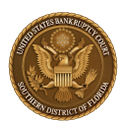You are here
Judge Paul G. Hyman, Jr. (Recall)
Divisional Office:
Announcement:
To schedule a judicial settlement conference with Judge Hyman:
- Designated Scheduling Attorney. The parties to a judicial settlement conference must select a designated scheduling attorney, who will be the only person communicating with the scheduling clerk.
- Names and Email Addresses. The designated scheduling attorney must provide to the scheduling clerk the names and email addresses of all lawyers and principals who will participate in the judicial settlement conference. Without the names and email addresses of all participants, the scheduling clerk cannot send the Zoom invitations.
- No Holding Dates. The scheduling clerk cannot hold dates, so the designated scheduling attorney should coordinate with all participants and confirm the selected date as soon as possible.
- Cancellation. The designated scheduling attorney must notify the scheduling clerk if the parties no longer need a scheduled judicial settlement conference.
- REQUEST FORM. Fill out this [FORM] to request a judicial settlement conference.
